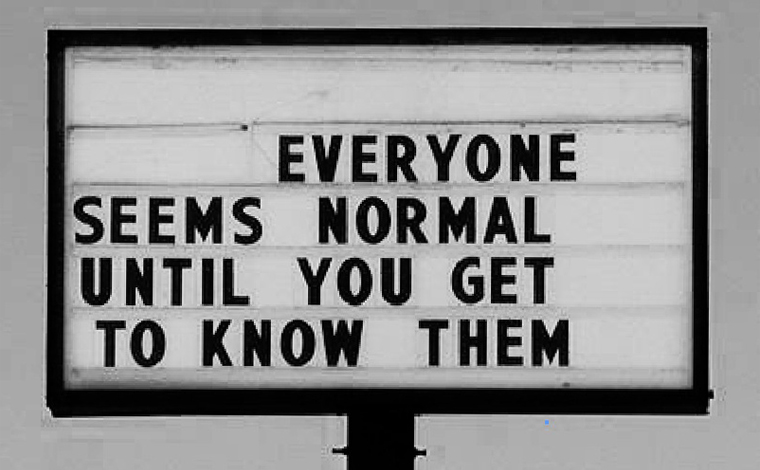
Go ahead and answer this question if you can, but if you are like everyone else I’ve asked and are honest about it, you won’t be able to come up with anyone. Turns out, everyone is weird.
When I use the word weird, I don’t mean people who eat worms, wear their underpants on backwards, or only eat green vegetables on Tuesday and Thursday. I am using weird in a more general sense, by which I mean different than us. And of course, we are different than others, so that means we are weird as well. Weird and different is the way we humans are.
We’ve all had the experience of going out for dinner with another couple and spending a few hours over drinks and dinner. Driving home, we think back on the evening. “They were a nice couple,” we say, and then, “I liked her quite a bit, but he was a little weird.” Sound familiar?
“Did you see the way he added up the dinner bill, as if the computer is capable of incorrect math?” we comment. “Thinking back, she did hold her fork kind of funny, and did you notice how carefully she avoided touching her lips with her food?” we laugh. “Come to think of it,” we smile knowingly to each other, “they were both a little weird…nice, but weird.” The same conversation is being had by the other couple. About how I tucked my napkin into my buttoned shirt collar in anticipation of drips and spills, and the way I drank glass after glass of water. In short, the way we are does not seem weird to us, but upon close inspection we surely seem weird to others.
Our critical nature, our innate ability to see difference and discriminate between this we like and that we don’t is quite automatic. We are so entirely familiar with our own particular way of seeing, doing, feeling and acting that we quickly classify difference as weirdness. This ability to discriminate is deeply connected to primitive survival skills; which plant tastes good and which is poison, which weather threatens and which does not, which facial expression means anger and which one means joy. Such inborn sensory reactions are embellished by our critical thinking skills, which allow us to predict outcomes with relative success, and thus improve our chances of living one more day. Yet, this penchant to see and think about difference, to discriminate and to critique, often operates well beyond its survival value, instead becoming a facile method of self-affirmation. Seeing difference as the weirdness of others is an easy way to bolster and build up our own self-image.
The old expression about finding ourselves in another’s shoes points to our need to understand that uniqueness and difference, rather than weird, are what instead adds richness, character and a sense of playfulness to life. Our discriminating awareness of others’ difference can be used as a reminder that we each have our own particular way of being in the world, which builds greater empathy and appreciation of others. I’m weird, you’re weird…thus it is.